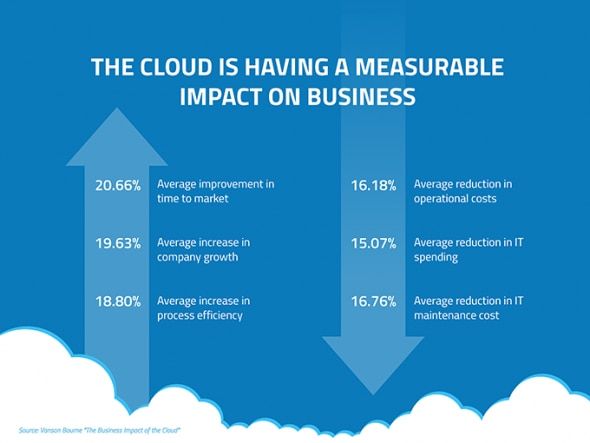How Businesses Can Benefit from Cloud Computing
Cloud computing has revolutionized the way businesses operate in today’s digital world. This technology allows companies to store, manage, and process data and applications on remote servers accessed through the internet. By leveraging the power of cloud computing, businesses can streamline their operations, improve efficiency, and reduce costs. Here are some of the key benefits that businesses can enjoy by embracing cloud computing:
1. Cost Savings
One of the most significant advantages of cloud computing for businesses is cost savings. By migrating to the cloud, companies can eliminate the need to invest in expensive hardware and infrastructure. Instead of spending a large sum on setting up and maintaining on-site servers, businesses can pay for cloud services on a subscription basis, which often works out to be more cost-effective in the long run. Moreover, cloud computing allows businesses to scale their resources up or down according to their needs, enabling them to save money on unused capacity.
2. Flexibility and Scalability
Cloud computing offers businesses unparalleled flexibility and scalability. With cloud services, businesses can easily adjust their computing resources based on fluctuations in demand. Whether a business needs to scale up during peak times or scale down during slower periods, cloud computing allows for seamless resource allocation. This level of flexibility enables businesses to operate more efficiently and effectively, without being limited by their IT infrastructure.
3. Improved Collaboration and Productivity
Cloud computing facilitates better collaboration among employees, regardless of their location. With cloud-based applications and services, team members can work on projects in real-time, share documents, and communicate more effectively. This enhanced collaboration not only boosts productivity but also improves decision-making and innovation within the organization. Additionally, employees can access business applications and data from any device with an internet connection, enabling them to work remotely and stay productive even when they are out of the office.
4. Enhanced Security and Data Protection
Security is a top priority for businesses, and cloud computing offers robust security measures to protect sensitive data and applications. Cloud service providers invest heavily in security technologies and protocols to safeguard their customers’ data against cyber threats and breaches. By storing data in the cloud, businesses can benefit from advanced security features such as encryption, multi-factor authentication, and regular backups. This ensures that their data is safe and secure, even in the event of a disaster or system failure.
5. Business Continuity and Disaster Recovery
Cloud computing provides businesses with a reliable backup and disaster recovery solution. In the event of a natural disaster, hardware failure, or cyber attack, businesses can quickly recover their data and applications from the cloud. Cloud service providers offer redundancy and failover mechanisms to ensure continuous uptime and availability of services. This level of business continuity gives businesses peace of mind knowing that their operations will not be disrupted in the face of unforeseen events.
6. Competitive Advantage
By adopting cloud computing, businesses can gain a competitive edge in the market. Cloud technology allows companies to be more agile, innovative, and responsive to changing market conditions. Businesses that leverage cloud computing can deliver products and services faster, optimize their processes, and adapt to new trends and customer demands more effectively. This agility and flexibility enable businesses to stay ahead of the competition and drive growth and success in the digital age.
In conclusion, cloud computing offers a multitude of benefits for businesses looking to modernize their operations and drive success in today’s fast-paced and digital environment. By embracing cloud technology, businesses can save costs, improve efficiency, enhance security, and gain a competitive advantage in the market. With the right cloud strategy in place, businesses can unlock new opportunities, streamline their operations, and thrive in the digital era.


